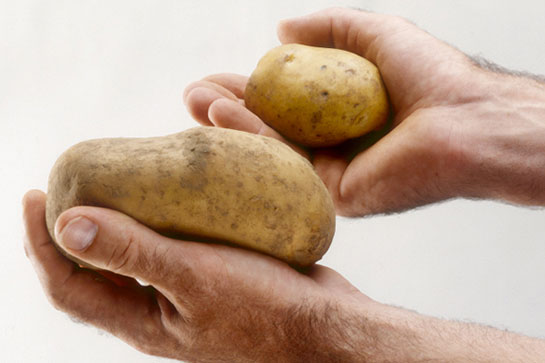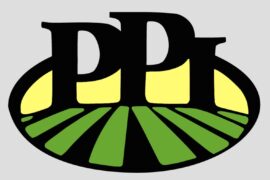Aviko, the world’s fourth largest producer of frozen potato products, issued a relatively upbeat potato crop update on March 28. Distributed through its e-mailed Innovation Newsletter, the report first reviewed conditions at the end of 2013, when it had just begun processing potatoes out of farmers’ storages.
The Steenderen, Holland-headquartered company, in refreshing the memories of the trade, noted that during the 2012-13 season the price of potatoes rose due to crop failure in the UK and Belgium. The resulting demand for fresh potatoes dominated the market and as a result and drove up prices.
After this expensive season, potato processors faced the late development of the 2013 early crop, which unfortunately resulted in continued high prices, after the switch from old 2012 stocks to the new 2013 crop in July. The 2013 crop figures represented only about one million tons more than in 2012, which failed to ease the pressure on demand. While the news from Eastern Europe and Russia about crop failure caused high price expectations during the early months of the season, it was expected that buyers in those markets would be shopping for fresh potatoes, again driving up European potato prices.

“Today we already have seven months of the 2013 crop season behind us and another five months to go before the switch to the 2014 crop,” Aviko pointed out in its newsletter. “Things have, however, turned out far better than predicted as the expected export demand did not materialize (with Russian and Turkish borders closed). The mild winter and moderate temperatures (without frost or snow) meant that the consumption of typical winter dishes based on potatoes, such as kale and pickled cabbage, fell. In addition, it would seem that the higher potato prices have led to a general drop in consumption of fresh potatoes.”
Positive Outlook
Therefore, the good news for processors at the moment is that they seem to have enough potato coverage in their contracts, and thus do not need to go to the market for additional volumes. Plus the quality of the 2013 crop is good, offering favorable yields in processing. Furthermore, over the last few months Belgian and French crop yields have been adjusted upwards from earlier published yield estimates. All of these factors have resulted in a quiet potato market, as limited demand has eased price pressure.
“If things continue as they are,” Aviko stated in its newsletter, “we are confident that the quality and the available volumes will meet the demand of the potato processing industry until the end of this season, although we cannot rule out unforeseen changes which may affect the market, as it is sensitive to even the smallest changes.”
Developments
As a note of caution, the company pointed out that it must be appreciated that currently the available potato volumes are limited and looking to the future. An eventual, however unexpected, opening of the Russian and/or Turkish borders to exporters from Western Europe could lead to a rise in consumption and result in a sudden change in the market.
“If this does not occur, however, the early planting of ‘early crop’ potatoes should determine market developments, and for now we do not foresee any market changes before the end of March,” concluded Aviko.





